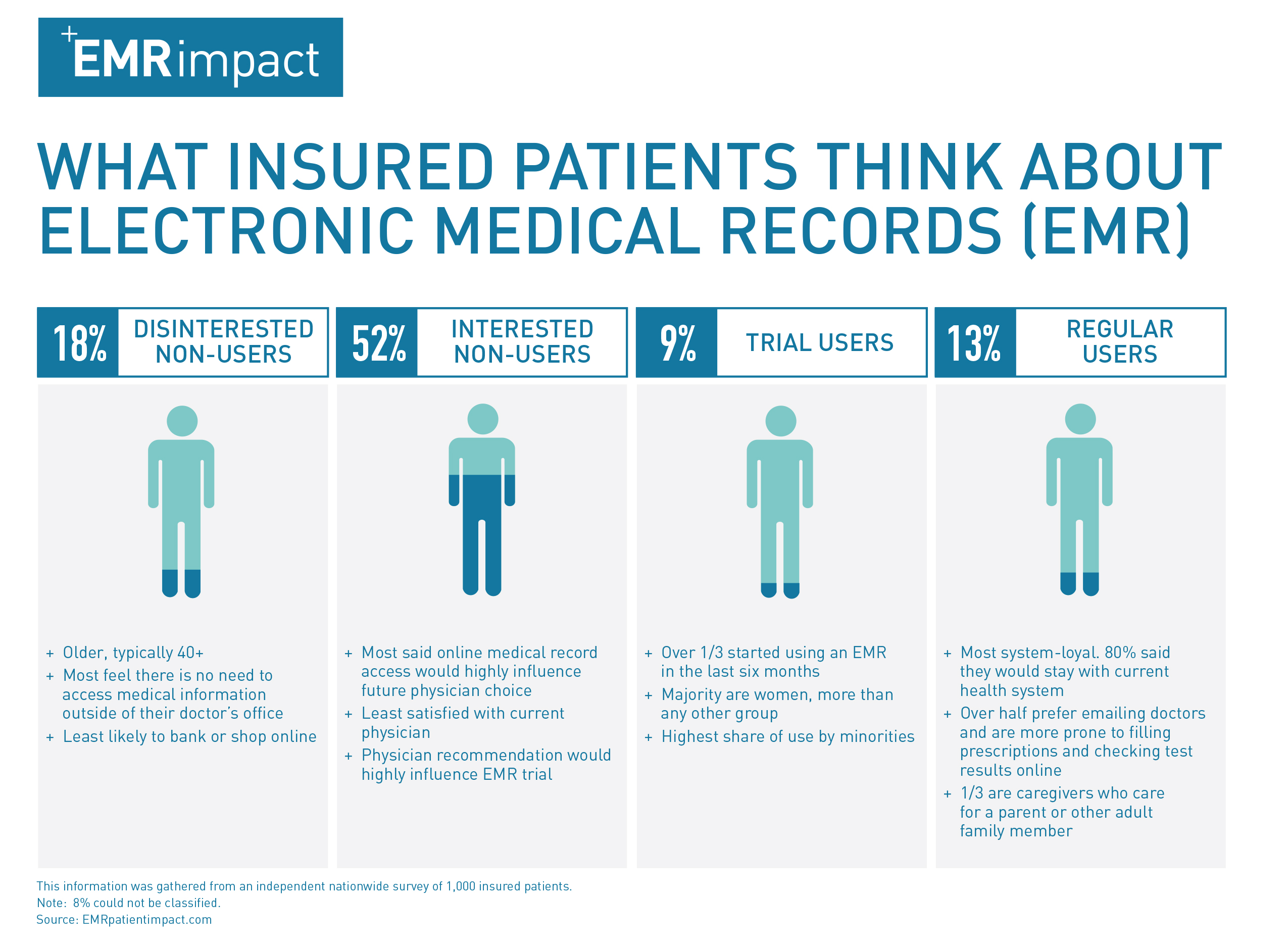Patients using EMRs feel they receive better quality of care and feel a stronger loyalty to their doctors, according to the recent EMR Patient Impact Study. The findings show that EMR users also believe they engage in clearer and more responsive communications with their physicians, and can gain access to information easier than non EMR users.
The findings come from a national consumer study by independent research firms Aeffect and 88 Brand Partners that examines the behaviors and perceptions of electronic medical record (EMR) users. Overall, an estimated 24 percent of Americans are currently using EMRs to check test results, order prescription refills, and make appointments while another 52 percent have expressed interest in using EMRs, but do not have access to them at this time for a variety of reasons.
With patient access to EMRs still being relatively new to the marketplace, the study identified four segments of EMRs users shown below, ranging from the disinterested, non user to the regular user.
4 Stages of EMR Adoption

- Stage 1 – Disinterested Non-Users (18%) believe EMRs are no more accurate than paper files; say they don’t need their medical information outside of their doctors’ offices.
- Stage 2 – Interested Non-Users (52%) tend to be less satisfied with their physician than any other type of user; most influenced by physicians encouragement of using EMRs.
- Stage 3 – Trial Users (9%) have the highest share of women and non-white consumers than any other group; one-third have just recently started using EMRs within the last six months.
- Stage 4 – Regular Users (13%) prefer emailing their doctor instead of calling or meeting in-person; one in three are caregivers to an adult family member; 67 percent say online access would be very influential in their choice of a new doctor.
Other key findings include:
- One in three caregivers (33%) have used an EMR, either on the web or via a mobile device, compared to 21 percent of non-caregivers
- Consumers who prefer their doctor to use an electronic chart cited numerous reasons including: access to medical records (40%); accuracy/better record keeping (18%); and coordination of care and information sharing (e.g. in case of emergency) (17%).
- EMR utilization is higher among consumers who are younger, live in the Western part of the United States, have higher levels of education, and provide care to an adult family member. An estimated 34 percent of residents of Western states report having tried an EMR.
- Consumers do not believe that paper charts are more secure than EMRs (28% agree). However, nearly 40 percent (39%) believe that electronic medical records are more accurate than paper charts.
Background/Methodology
Aeffect and 88 Brand Partners conducted a nationwide online survey of 1000 consumers who represent potential users of health information technology. The survey consisted of 40 questions on topics related to use of electronic medical records (EMRs). To qualify for participation, respondents were required to have some type of health insurance, have seen a physician within the past three years, and have a regular doctor. Employment screens were in place to exclude individuals who work in IT/web development, marketing or advertising, or healthcare.
For a full copy of the report, visit www.EMRPatientImpact.com
Featured image credit: Yann Ropars via cc
